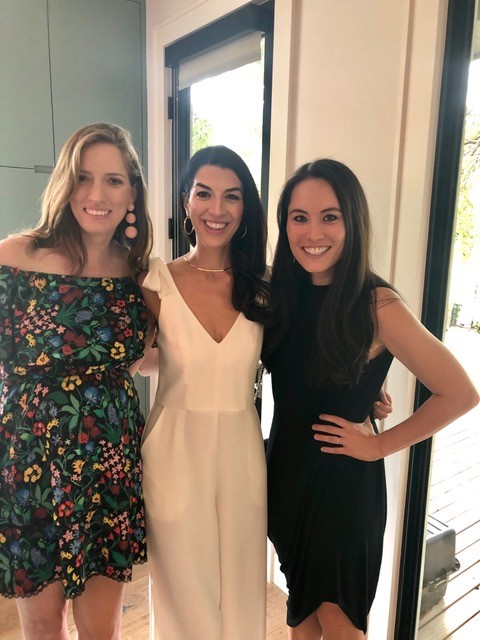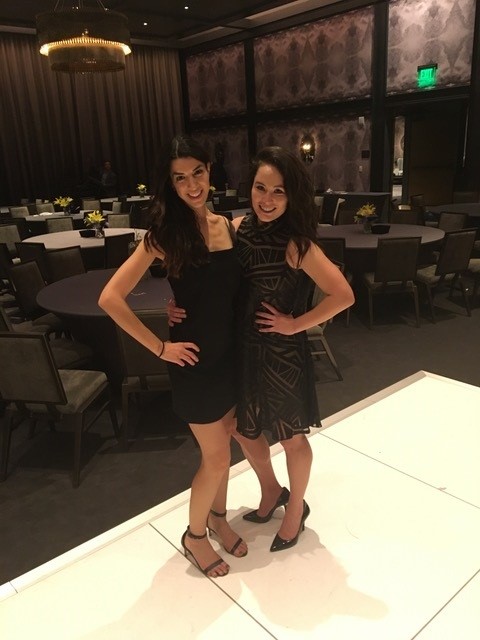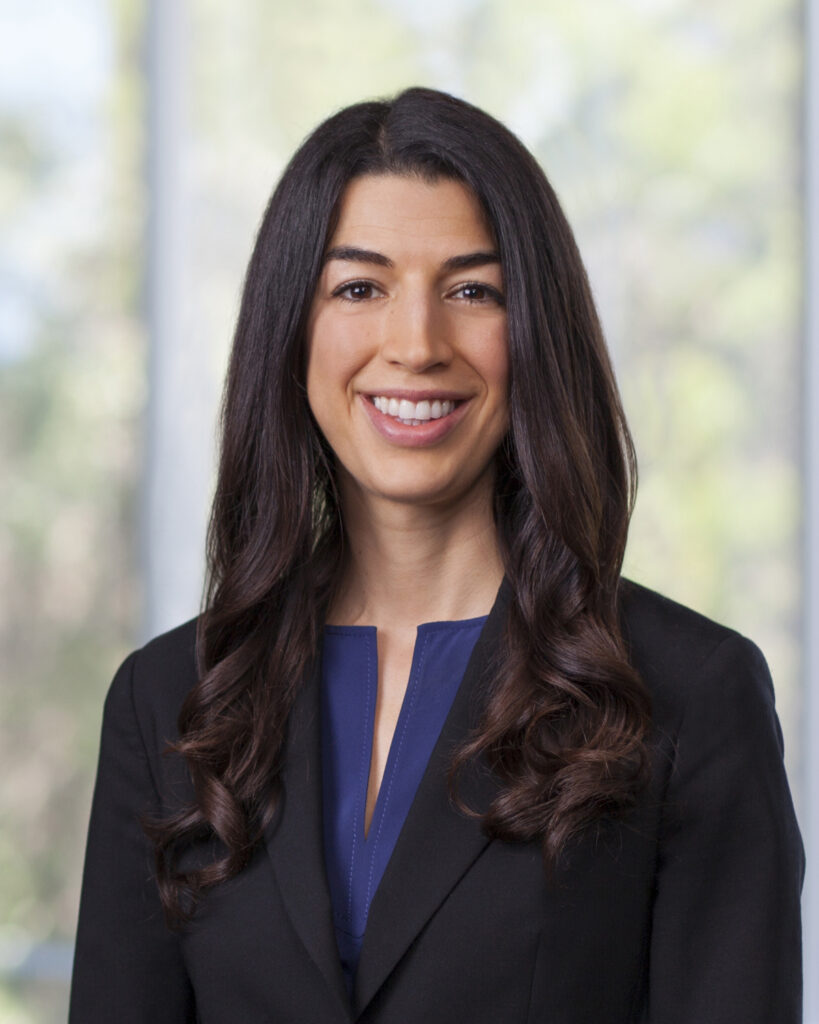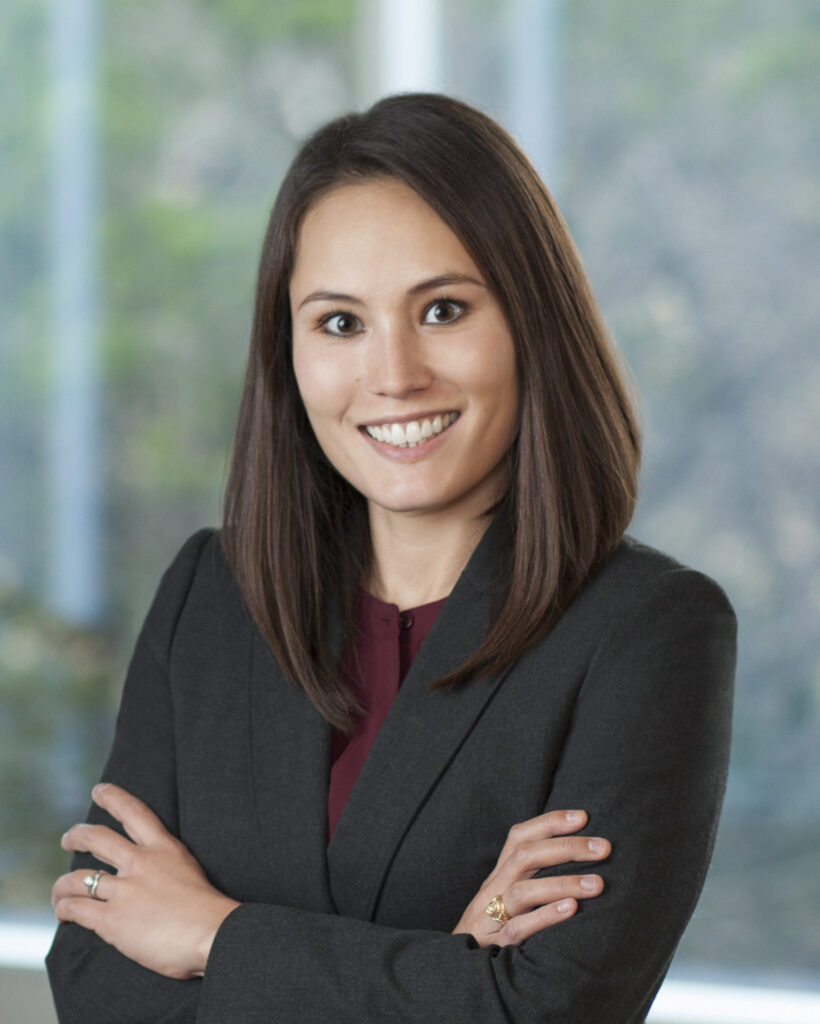As we commemorate International Women’s Day and Women’s History Month, two women lawyers in the Austin office of Vinson & Elkins agreed to discuss the importance of women mentoring women from the perspective of both the mentor and the mentee.
Marisa Secco Giles, a V&E litigation partner, has mentored Michelle Arishita, a counsel in V&E’s litigation group, throughout her career at the firm.
* * *
Tell us how and at what point in your careers your mentor/mentee relationship began?

Marisa Secco Giles: I was already working at Vinson & Elkins as an associate when Michelle was a summer associate, and after she started at the firm full time, I eventually became her formal associate mentor. We became fast friends — we both take our work seriously, but we’re also fun, social people. We quickly bonded over our love of recruiting [for V&E] at the University of Texas School of Law. The friendship just grew from there.
Michelle Arishita: I first reached out to Marisa even before she officially became my mentor, just to ask questions like “How do I navigate this,” or “What should I do with this issue on a case,” even when we weren’t working together. Later, when we worked on a number of cases together, our professional relationship grew. But like Marisa said, we also grew very close outside of work, attending each other’s weddings or baby showers and really building a friendship.
How does that friendship enhance your mentoring relationship?
Arishita: Because of our friendship, in addition to our mentoring relationship, I’m feel like I’m able to go to Marisa with questions, and I don’t think twice about whether it’s something I can ask her. There’s a comfort level there that makes it easy to ask for advice. It also makes it easier to give (and receive) feedback when you’re comfortable with the person and you know they have your best interests in mind.
Giles: I definitely agree that we can be really honest with each other. I also think [having a friendship] humanizes the person you’re asking questions to or receiving advice from. When you know their family and kids and their struggles and successes, that changes the dynamic entirely from someone who you only interact with in the office in a one-dimensional manner. Michelle and I view each other as complete humans, and we understand there are things we’re dealing with outside of work and try to keep that in mind when asking for and giving advice.
Arishita: When you are true friends, you’re genuinely excited and proud of the other person’s accomplishments. I remember being thrilled when Marisa was elected partner and celebrating with her, not just as an associate who worked with her, but as a friend. That adds something to your relationship when you have that vested, genuine interest in seeing the other person succeed.
Giles: Michelle is also a great support system for me, especially now that she is more senior at the firm. My mom passed away last year, which was a very difficult time, but Michelle was a great help. She understood that I might need help with things like coverage at firm events and was constantly offering support, whether or not she could be the person to do a particular task. It’s great to have a trusted colleague who can back you up when things get tough.

Since you are so close, what is it like to work together on a case? Does your relationship change the experience?
Giles: We had a difficult case that we worked together on in federal court. There was a very quick fuse on every single part of the case, but Michelle was ready and willing to jump in anywhere she was needed and understood the gravity of that matter. It was also great to have her there because, when you’re working 12-hour days, you need someone to laugh with because that’s the only way you get through it. We had one another to occasionally lighten the mood and add some levity to what was a very serious situation — you’ve got to have fun when you’re working that much. I’m not sure I could have survived that case without Michelle.
Arishita: I was fairly junior then and I was being asked to take on some new opportunities for the first time, but I knew I could ask Marisa questions without her thinking it was a sign I wasn’t ready or couldn’t handle it. I had the freedom to ask for help and feedback along the way.
And on a lighter note, we learned during that case that we also like the same restaurants. So it helped that whenever we ordered food in the evenings, we would always pick exactly the same meal!
Giles: And we both love snacks to keep ourselves going on late nights, so we bonded over that, too! There was probably too much candy consumed during that case, but in all seriousness that’s a big part of it. I’m not a robot. Michelle’s not a robot. We’re just human beings who have the needs of human beings, even though sometimes you have to be superhuman to do this job. Having somebody there to support you, whether that’s bringing snacks or making you laugh or just acting as a sounding board, having someone you know is not going to judge you is so important.
What should young women lawyers look for in a mentor, especially if they don’t have the opportunity to work with another woman in their practice group or their office? What qualities are most important?
Arishita: Women can have mentors in a variety of situations. I have a number of outstanding male mentors that I know are looking out for my career, want me to become a better lawyer and, most importantly, also care about me as a person. Young women don’t necessarily need women as mentors, but I think if that’s what they’re looking for, there are many places they can find them, whether it’s within their firm, a law school contact, a friend or former colleague who is in-house or even at another law firm — don’t limit yourself.
Giles: When I was a younger lawyer, I was mentored by a female partner in V&E’s litigation section in the Austin office (Jennifer Poppe, who is now retired). She’s amazing and it was great to have her as a mentor, but I did also pick up mentors in other places. A couple of those were actually my co-counsel on cases. They were senior female partners at other law firms, but they took me under their wing and were very, very helpful. Definitely don’t limit yourself to your own firm. There are all sorts of places to meet great female mentors.
Your relationship has evolved into one where you are both learning from and teaching the other. Why is that so important?

Giles (pictured right): Michelle was a brand new lawyer when I first met her and at that point probably needed a lot more guidance. But as she has grown into a fantastic lawyer in her own right, I regularly reach out to her to bounce ideas on case strategy. When you’ve been someone’s mentor or mentee for years, the issues and questions you deal with evolve. And as much as I love working with Michelle, I know that in order to be successful she needs to work with a lot of different people. I encourage that because I want her to flourish as she grows and develops her own business. The mentor/mentee relationship definitely runs both ways. Michelle supports me in so many ways — having a more senior woman who I’ve seen develop from a baby lawyer into a very outstanding counsel is so rewarding, not to mention invaluable to my practice.
Michelle, now that you’re more senior in your career and have been put in the role as an official mentor, how has your relationship with Marisa shaped the way you advise younger women or younger mentees?
Arishita: It’s so important to pay it forward. I can see directly how much my career has benefited from having supportive mentors and how much I’ve learned. Something Marisa always does that I try to emulate is advocating for people, celebrating their successes and making sure to attribute those successes to them rather than taking credit yourself.
How do strong mentoring relationships like yours help with the retention of female lawyers?
Giles: Every lawyer is different, but as a woman, you look to see if there are other women who have succeeded where you work — that is just a natural thing to do. When you see successful people in the workplace who share the same qualities you do, that gives you hope for your own success. So it is absolutely invaluable to have female leadership if you expect young women to succeed in that workplace.
That is something Vinson & Elkins is very focused on and working to improve, because the more women we have in leadership, the better off we are as a firm. It’s an absolute feat to balance having a family life and still perform at an extremely high level — that’s undeniable. Law firms in general need to have more women in leadership, more women mentors, more support for women to incentivize them to continue to work in private practice. One fairly straightforward way to incentivize that is to promote women. In 2021, more than 55 percent of law students in the U.S. were women; that’s where the talent is, and firms can’t afford to let that talent fall by the wayside just because there aren’t enough women partners in leadership roles to inspire those young law students. This year, nine of the 20 lawyers promoted to partner at Vinson & Elkins were women, so that’s a real concrete step. But it’s going to take a continued, wider effort — this needs to be an industry where women can thrive, and women mentoring women is part of that.
Arishita: When I started at V&E, I said I’d stay as long as I was continuing to learn and grow, and as long as I was still having fun. And I think having mentors makes that all happen. Having people who I know are looking out for my career and want me to succeed and who I genuinely enjoy working with every day is why I’ve stayed at the firm.
Giles: It takes vigilance to make sure that women get promoted because, at any stage along the way, they could fall through the cracks. That work doesn’t have to be done by women, it just has to be someone who really cares about these issues at every stage. The advancement of women is ultimately dependent on people. It’s not dependent on a policy or programs or meetings. It requires a handful of people, men and women, with a certain level of decision-making power within an institution — whether that’s a law firm or otherwise — who choose to use that power to advance specific women within the institution. That’s how things work, it’s as simple and as complicated as that.
You mentioned the difficulty of balancing work and family. How important are reliable mentors to that balance, especially when going out on or coming back from family leave?

Arishita (pictured right): Parental leave is still more of a women’s issue, especially in law firms, because there simply aren’t as many men taking equal parental leave time. When going out on leave and returning from leave, you have to create a plan to make sure your cases are going to be covered and that everything will be handled before you’re out and then have a plan for transitioning back. And that’s an issue that women have to deal with more often. For me, it was important to have mentors, both men and women, who made sure I was still able to take on substantive responsibilities right up until I was out so that I didn’t miss out on opportunities and then jump back in when I’ve returned. It’s important to have people who are looking out for you to make sure your leave doesn’t set you back in your career trajectory.
What is best advice that you have given or received in a mentorship relationship, and what would you say to women lawyers who want to recreate in their career a bond similar to what the two of you have built?
Arishita: The best advice I’ve received is that there’s not one right way to practice. Find what works for you. Watch other people’s styles and take pieces of each that resonate with you. Maybe it’s liking how one person gives their opening statements and another’s tone of voice or pace. You may admire how someone else handles business development. Pick a little bit from each person to figure out what works best for you. Some of that will be things you pick up from other women, but it doesn’t have to be. That’s the best advice that I’ve received and that I now pass on to others.
Giles: The best advice that I both received and have given mentees of all genders is to keep your eyes on the prize. If law firm partnership is your goal, you have to stay focused and articulate that goal to as many people around you as possible. Stay constant in your goal, even when experiencing doubt. We all experience doubt, but keep those doubts to your inner circle and maintain your focus. Don’t be shy about telling people your goal, because the more people who know, the more people who will start to view you in that role. That was good advice for me, and I share it, especially with other women. In my experience, men are more likely to vocalize their desire to get promoted than women are. So if that’s what you want in your career, tell people and be purposeful about the steps you are taking; bill the hours, build the client relationships, take the standup experience when it’s offered to you. Find mentors who can help advance you in your career. That’s not Machiavellian, that’s just strategic.
Even if you have great male mentors, why it is important to bring other women into your circle as sponsors?
Giles: It adds a level of comfort to your mentor relationship; there are things you can talk about with women that you may not want to talk about with men, whether that’s health issues or childcare or any number of things. Also, women are still an extreme minority in law firm equity partnerships. A 2021 ABA study said that only 23 percent of equity partners in U.S. law firms are women, so we do face unique challenges as women — not only the challenges of work-life balance, but also stereotypes such as female litigators not being able to go toe-to-toe with men in the courtroom. These things make it important to have women in your professional orbit who you can emulate. We have not reached equity in this profession, and I think it’s important to figure out how other women have navigated success. That is the key advantage to having a woman mentor and why I think having a woman mentor is still extremely important.
Marisa Secco Giles is a partner and Michelle Arishita is counsel at Vinson & Elkins in Austin. Both practice in the firm’s commercial and business litigation group.
Publisher’s Note: This content is premium subscriber thought leadership and is published outside of our paywall.
